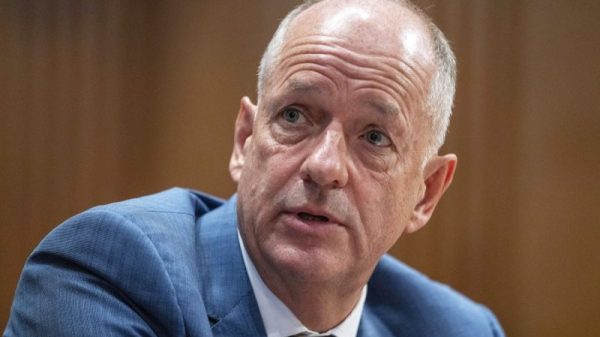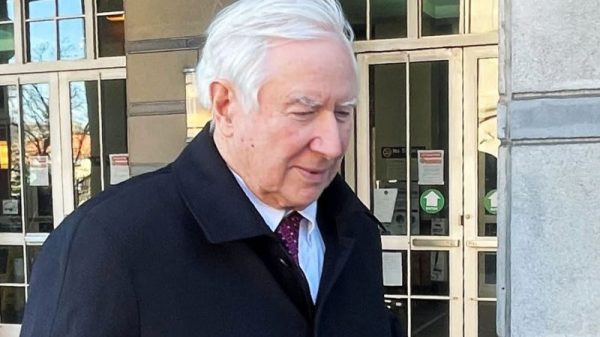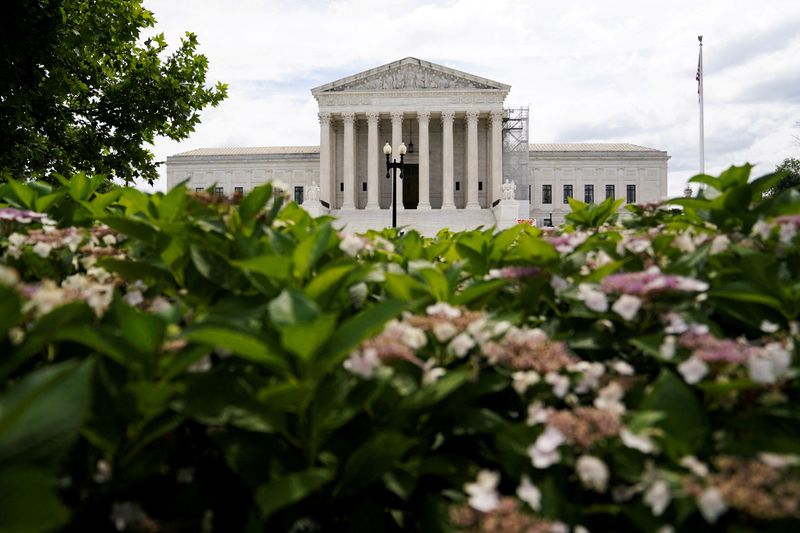By John Kruzel
WASHINGTON (Reuters) – The U.S. Supreme Court tackled a case on Tuesday involving a New York state man who was fired from his job as a commercial truck driver for failing a drug test after taking cannabidiol, or CBD, that he said was falsely sold as lacking the psychoactive ingredient present in marijuana.
The justices heard an appeal led by Medical Marijuana Inc of a lower court’s decision allowing plaintiff Douglas Horn to bring a civil lawsuit against the San Diego, California-based company under the Racketeer Influenced and Corrupt Organizations (RICO) Act. This 1970 federal law was designed to crack down on organized crime and its economic impact.
The civil provisions of the law permit triple damages for successful lawsuits by “any person injured in his business or property” as a result of certain actions by a defendant.
Horn, who was ailing from injuries sustained in a trucking accident, in 2012 purchased a CBD tincture called Dixie X. It was advertised as a natural pain reliever containing no tetrahydrocannabinol (THC), the psychoactive ingredient in marijuana that causes a high.
After a random drug test ordered by his employer detected THC in his system, Horn was fired from his trucking job that he had held for more than a decade. Horn has said he is not a marijuana user.
Some of the justices seemed receptive to the company’s argument that Horn’s loss of employment was not the kind of business injury that Congress meant to guard against when it enacted the RICO Act.
Conservative Justice Brett Kavanaugh expressed concern about making it too easy for plaintiffs to bring civil RICO suits simply by characterizing certain personal injuries as injuries to business or property.
“That would be a dramatic, really radical shift in how tort suits are brought throughout the United States,” Kavanaugh told Horn’s lawyer Easha Anand, referring to personal injury law, known as torts.
“And we would expect a clearer indication from Congress,” Kavanaugh added.
Lisa Blatt, the lawyer who represented Medical Marijuana, argued that allowing Horn’s suit to proceed would open the door to plaintiffs making a federal case out of personal injury complaints better addressed under state law.
“It is utterly implausible that Congress federalized every slip and fall involving RICO predicates,” Blatt said, referring to RICO crimes such as embezzlement, extortion or mail fraud.
But questions posed by some of the justices suggested they might be inclined to let Horn’s civil RICO suit proceed.
“If you’re harmed when you lose a job, then you’ve been injured in your business, haven’t you?” liberal Justice Elena Kagan asked Blatt.
“I guess what I’m saying is the simplest, clearest reading of this statutory language is it doesn’t distinguish by what causes the harm,” Kagan added. “It just says, if you’re harmed in a way that’s in your business or property, which has been understood to include being harmed by loss of a job, and that’s by reason of a (racketeering activity), then you’re entitled to threefold the damages you would otherwise be.”
Horn and his wife, Cindy, in 2015 brought a lawsuit in federal court in New York state seeking monetary damages, claiming, among other things, that Medical Marijuana and associated companies violated RICO’s provisions. Horn had the tincture independently tested in a laboratory, which confirmed that the product contained THC.
According to the suit, a “pattern of racketeering activity” by the companies – including violations of the federal Controlled Substances Act, as well as mail fraud and wire fraud – inflicted a business or property injury on Horn in the form of his firing.
A federal trial judge ruled against Horn’s civil RICO claim. The New York-based 2nd U.S. Circuit Court of Appeals reversed the judge’s decision, prompting Medical Marijuana’s appeal to the Supreme Court.
The justices are expected to rule in the case by the end of June.

































